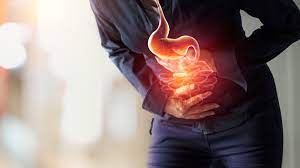Hormones are chemical messengers that have profound effects on your mental, physical, and emotional health. For instance, they play a major role in controlling your appetite, weight, and mood.
Typically, your body produces the precise amount of each hormone needed for various processes to keep you healthy.
However, sedentary lifestyles and Western dietary patterns may affect your hormonal environment. In addition, levels of certain hormones decline with age, and some people experience a more dramatic decrease than others.
However, a nutritious diet and other healthy lifestyle habits may help improve your hormonal health and allow you to feel and perform your best.
Here are 10 natural ways to balance your hormones.
1. Eat enough protein at every meal
Consuming adequate amounts of protein is extremely important.
Not only does protein provide essential amino acids that your body can’t make on its own, but your body also needs it to produce protein-derived hormones — also known as peptide hormones (1Trusted Source).
Your endocrine glands make these hormones from amino acids. Peptide hormones play a crucial role in regulating many physiological processes, such as growth, energy metabolism, appetite, stress, and reproduction (1Trusted Source).
For example, protein intake influences hormones that control appetite and food intake, communicating information about energy status to your brain (2Trusted Source).
Research has shown that eating protein decreases the hunger hormone ghrelin and stimulates the production of hormones that help you feel full, including peptide YY (PYY) and glucagon-like peptide-1 (GLP-1) (2Trusted Source, 3Trusted Source, 4Trusted Source).
One 3-month study in 156 teenagers with obesity associated a high protein breakfast with increased PYY and GLP-1 levels, which resulted in weight loss due to increased feelings of fullness (5Trusted Source).
Experts recommend eating a minimum of 20–30 grams of protein per meal. You can do this by including high protein foods such as eggs, chicken breast, lentils, or fish at each meal (3Trusted Source).
Summary
Eating sufficient protein triggers the production of peptide hormones, some of which suppress appetite and help you feel full. Aim for a minimum of 20–30 grams of protein per meal.
2. Engage in regular exercise
open next page to continue reading….




